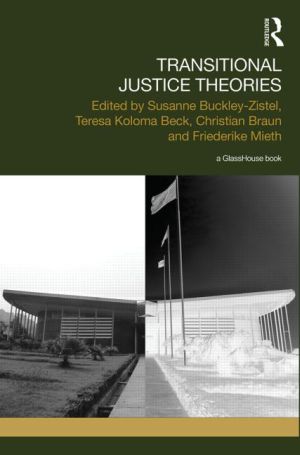
Transitional justice is rapidly gaining significance as an umbrella term for mechanisms and policy instruments for dealing with a violent past in the aftermath of mass atrocities or dictatorial regimes. The practice of transitional justice brings into place institutions and mechanisms addressing systematic human rights abuses in order to promote the transition to a peaceful coexistence. These include retributive measures, such as tribunals and court trials, as well as restorative or transformative initiatives in view of enhancing community relations, such as truth commissions or memory work. Yet, despite the range of activities conducted globally and the vibrant academic debate on the topic, there are but few attempts to conceptualise transitional justice theoretically.
Transitional Justice Theories fills this gap. The first part of the book theorises transitional justice through the notion of transition. Using the concepts of social learning, social trust, implicit memory, and collective trauma, the chapters attempt to identify distinct features of the transitional moment and theoretically capture relevant social processes on a micro- and macro-level. The second part focuses on the notion of justice, outlining different understandings, such as restorative, transformative, and reparative; and discussing the use of these concepts in different settings and by different agents. The third part considers the academic as well as political discourses on transitional justice from the perspective of critical social theories, including feminism and postcolonialism. Contributing to the academic debate as well as to the practice of transitional justice, Transitional Justice Theories is an important contribution to this fast growing field